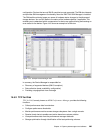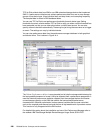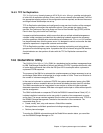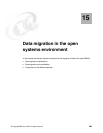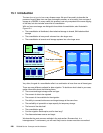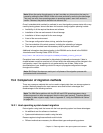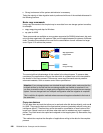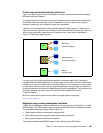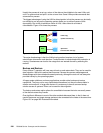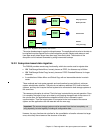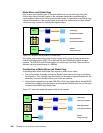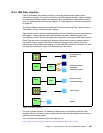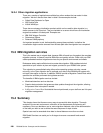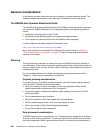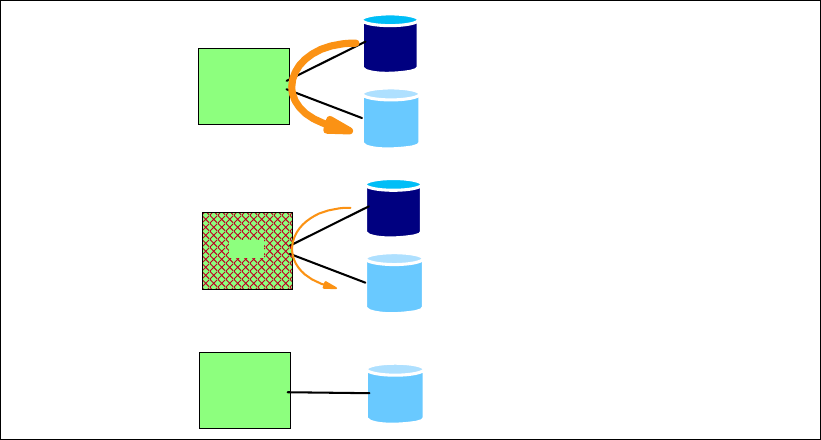
Chapter 15. Data migration in the open systems environment 293
Online copy and synchronization with rsync
rsync is an open source tool that is available for all major open system platforms, including
Windows and Novell Netware.
Its original purpose is the remote mirroring of file systems with as few network requirements
as possible. Once the initial copy is done, it keeps the mirror up to date by only copying
changes. Additionally, the incremental copies are compressed.
rsync can also be used for local mirroring and therefore for data migration. It allows you to
copy the data while applications are writing to it and thus minimizes the disruption. As for the
normal copy commands,
rsync works on file systems only. It also allows consolidation.
Figure 15-3 shows the steps required.
Figure 15-3 Data migration with rsync
You set up the initial copy during normal operation, allowing enough time for the copy to
complete before the planned switch to the new storage (cut over time). Once the initial copy is
complete, you keep it up to date with incremental
rsync runs, for instance once a day, during
off-peak hours. At the cut over time, you stop the applications using the data, let
rsnyc do a
final synchronization, and restart the applications using the migrated data. The duration of the
disruption depends only on the amount of data that has changed since the last
re-synchronization.
More information about
rsync can be found on the rsync project home page:
http://samba.org/rsync/
Migration using volume management software
Logical Volume Managers (LVMs) are available for all open systems (for Windows it is called
Disk Manager). The LVM creates a layer of storage virtualization within the operating system.
The most basic functionality every LVM provides is to:
Extend logical volumes across several physical disks
Stripe data across several physical disks to enhance performance
Mirror data for higher availability and migration
The LUNs provided by the DS6000 appear to the LVM as physical SCSI disks.
Initial Copy
Host
Host
Host
Final synchronization
Incremental updates
Stop applications
Restart
using new copy



